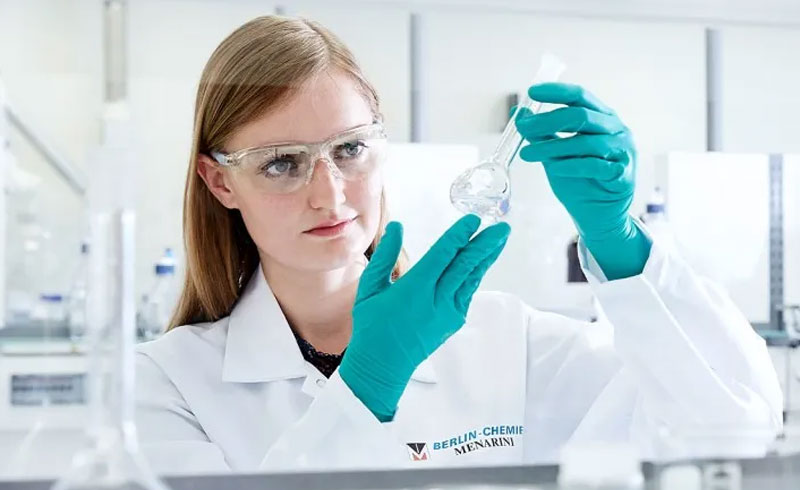- The more serious the pathology, the more the perception of doctors and patients differs
- The consequences of the communication gap are reflected in the patient’s state of health
- The disease affects 210 million people worldwide, with 3 million deaths a year

Milan (Italy) 10 September 2017: Perhaps due to the difficulty of admitting their illness, or perhaps because of a mere difference in terminology and language, 9 out of 10 patients with chronic obstructive pulmonary disease (COPD) do not inform their doctor of their real condition. A study1 published in the International Journal of COPD sheds light on the lack of effective, bi-directional communication which often affects the state of health of patients. The study will be present at the 2017 European Respiratory Society (ERS) Congress, to be held from 9 to 13 September in Milan.
Classified as the third cause of death in the world by 2030, COPD is a respiratory system disease characterised by an irreversible obstruction of the airways, of variable size depending on the gravity of the condition. Usually progressive and associated with a state of chronic inflammation of the pulmonary tissue, there is still no effective treatment for the pathology which allows the lost respiratory function to be restored. Worldwide COPD is often under-diagnosed. According to the estimates of the World Health Organisation (WHO), it affects 210 million people worldwide, and causes the death of approximately 3 million each year, especially among the elderly and smokers (www.who.int/mediacentre/factsheets/fs315/en).
The survey was conducted on approximately 1,000 people (1/3 doctors, 1/3 patients, 1/3 pneumology specialists) in Italy, Spain and Germany, with an average patient age of 55-64 years, 41% of which women. 38% of patients were smokers despite the disease and 28% had a severe form of the pathology. The team of researchers analysed the relationship between the perception of the pathology from the perspective of the GPs, the patients with COPD and the pneumology specialists through mirror questionnaires, investigating the same area from the different points of view of the three
different figures. Performed with the non-conditional support of Menarini, the study had the objective of identifying and understanding the different perceptions of the pathology, in order to overcome them.
From the data, which were compiled by the large healthcare consultancy firm, QuintilesIMS, it emerged that 11% of patients said they had a “quite honest” relationship with their doctors, while 89% declared their relationship was “generally not honest” and no one (0%) said they had a “completely honest” relationship. What don’t they tell the truth about? For example, there could be people who say they have stopped smoking but still smoke, those who say they continue to do the exercises prescribed to keep the respiratory muscle structure active but don’t really or, more simply, those who do not communicate their discomfort or the difficulties they face in everyday life. The worst thing is that this reality is severely underestimated by professionals. In fact, doctors are much more optimistic: 42% of GPs stated that patients were quite honest, 53% said that in general they were not and 5% thought that they were completely honest. Among pneumology specialists the percentage was 49%, 50% and 1% respectively. This is an indication of a probable lack of effective communication between doctors and patients.
The perception of the problems and their impact on quality of life differs between GPs, specialists and patients, in particular as symptoms worsen. For moderate or mild forms of COPD, the perception of the discomfort experienced in everyday life, at work and in relationships is largely deemed by the patient to have a “moderate impact” and the perception of doctors is aligned to this. However, the more the forms of COPD worsen, the less doctors are aware of the real discomfort for their patients. And the consequences of this affect the patients’ health.
“The communication gap has direct consequences on the health of the patient. If communication between the two figures is not open, they cannot truly understand one another and the necessary “countermeasures” for greater control of the pathology cannot be implemented. It is important to work on this aspect to promote an open dialogue, in order to improve treatments and allow both the patient to better face their daily battle with COPD, and healthcare workers to do the maximum to understand and help patients” explains Bartolome Celli, Professor of Medicine at the Harvard Medical School of Boston and lead author of the study.
Francesco Blasi of the Ca’ Granda State University of Milan, Mina Gaga, ERS President, Dave Singh of the University of Manchester, Claus Vogelmeier of the Philipps-Universität of Marburg and Alvar Agustí of the University of Barcelona were also members of the research team.
“After a long and positive experience in Italy in the respiratory area, in a short period of time, Menarini has become a solid international organisation in the fight against COPD. With this project, Menarini wants to offer additional value to the relationship between doctor and patient, with the aim of helping both to have honest, effective communication, something which is deeply entrenched in our corporate philosophy” stated Lorenzo Melani, Corporate Medical Director of the Menarini Group.


















